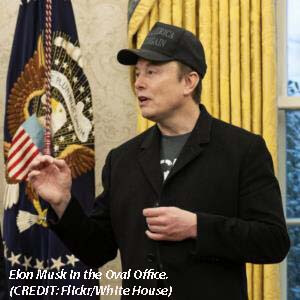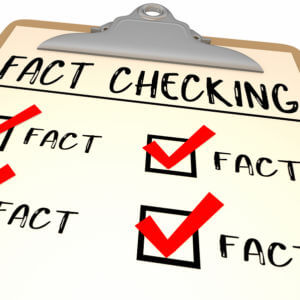Seminal is a strong word. It means that when an event is seminal, nothing will ever be the same again.
Elon Musk and his marauding young minions will leave the United States damaged in ways that won’t be easily put right, toppling the country from the position it has held so long as the world’s pillar of decency, generosity and law. As President Ronald Reagan said, “a shining city on a hill.”
Every day, the small but deadly Musk force, authorized and encouraged by President Trump, is tarnishing that image.
Once you have established yourself as a capricious and unreliable partner, you won’t be trusted again; trust lost defies repair. It doesn’t come back with an apology, a course correction or a change of administration. It is gone, sometimes for centuries. Distrust is enduring.
Treaties torn up today are treaties that won’t be written tomorrow. Disavowing America’s commitments is a Trump hallmark. Tearing up these commitments is more than an indication of instability; it is a burden on the future and a doubt about the sincerity of our handshake.
We have left the World Health Organization amid a new wave of incipient pandemics and abandoned the Paris Agreement without reason. We are about to damage in grotesque ways our good relations with Canada and Mexico, our family in North America.
Trump has drummed up an inexplicable animus to our good neighbors and best trading partners. With tariffs, he is planning to violate our trading agreement with them. President Trump signed the United States-Mexico-Canada Agreement into law — with praise for his handiwork — in his first term.
For me, the immediate excess of the administration has been the destruction of the U.S. Agency for International Development. I have seen the agency at work in Pakistan, Bolivia, and, especially, in Central Africa. My wife, Linda Gasparello, has seen its work in Egypt and the Middle East, helping to save and enhance lives and stabilize those countries.
First, USAID was lied about and then it was shuttered. In that shuttering, America withdrew its helping hand to the world, its most potent and effective marquee for its values of caring, helping, educating and uplifting.
Musk’s blind and ignorant closing of USAID has blacked out our billboard to the world of what America is about. Women, especially, will suffer.
The immediate effect of shutting down USAID is that thousands of people who would have eaten today won’t. People who would have received their HIV treatment won’t. Children who would have learned to read and write won’t. Uneducated populations are putty in the hands of extremists, from Marxists to jihadists. In damaging the recipients of USAID assistance, we are damaging America and its global interests.
“Fraud,” says Trump. “Fraud,” says Musk. “Fraud,” say their supporters. If there is so much fraud, where is the evidence, and where are the prosecutions? Why are there no arrests?
In fact, for a relatively small agency, USAID has been examined, audited and inspected by the machinery of government and by Congress more than any other agency.
Steven Hendrix, who retired last year as the USAID coordinator for foreign assistance in the State Department, said on the television program “White House Chronicle,” which I host with Adam Clayton Powell III, that when he was working with USAID in Iraq, “We instituted a very rigorous performance evaluation and monitoring of all of these investments. We were also very responsive to the State inspector general and other authorities. I’ve got to tell you, in Iraq I had simultaneous audits from all of them.”
The toughest of these, he said, was the USAID’s own inspector general.
The fraud may be that the Trump-Musk duopoly is defrauding America of its potent soft power.





